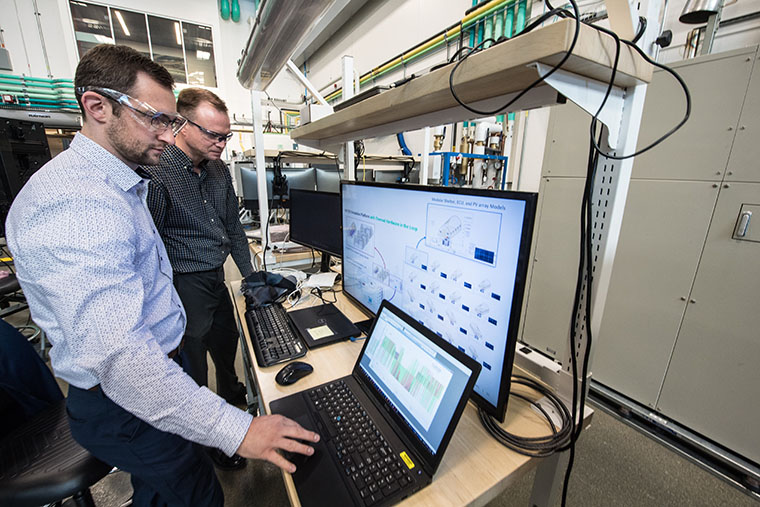Green Computing Catalyzer
The Green Computing Catalyzer analyzes pathways to reduce the energy consumption and carbon emissions of computing systems.
Demand for high volumes of data processing and analysis and artificial intelligence is increasing, and computing systems permeate many aspects of modern life. As a result, computing has become a burgeoning consumer of energy and contributor of carbon emissions.
Green computing is the design, manufacture, use, and disposal of computing devices in a way that reduces their environmental impact. Green computing is an emerging trend in computing technology and has led to new ways to reduce energy consumption, properly dispose of electronic waste, and more.
JISEA's Green Computing Catalyzer, launched in May 2022, is exploring pathways to reduce the environmental impact of computing and advance green computing as a salient research domain at the National Renewable Energy Laboratory (NREL). Through the Green Computing Catalyzer, JISEA/NREL analysts will develop a baseline of existing research within green computing, build a network of experts, and identify needs for further research, knowledge sharing, and collaborations in the field.

NREL researchers use a high-performance computer in NREL's Energy Systems Integration Facility. Photo by Dennis Schroeder, NREL
Publications
Green Computing Catalyzer Kickoff: Green Artificial Intelligence Directions, JISEA Presentation (2022)
Related Work
NREL High-Performance Computing Data Center
NREL High-Performance Computing Systems
Partnership Opportunities
The Green Computer Catalyzer is building an inclusive Green Computing Collaborative to help facilitate strategic discussions and partnership opportunities. If you are interested in working with the catalyzer and the National Renewable Energy Laboratory on this topic, please fill out this contact form and a catalyzer representative will be in touch.
Contact
Charles Tripp
Senior Computational Science Researcher, NREL
